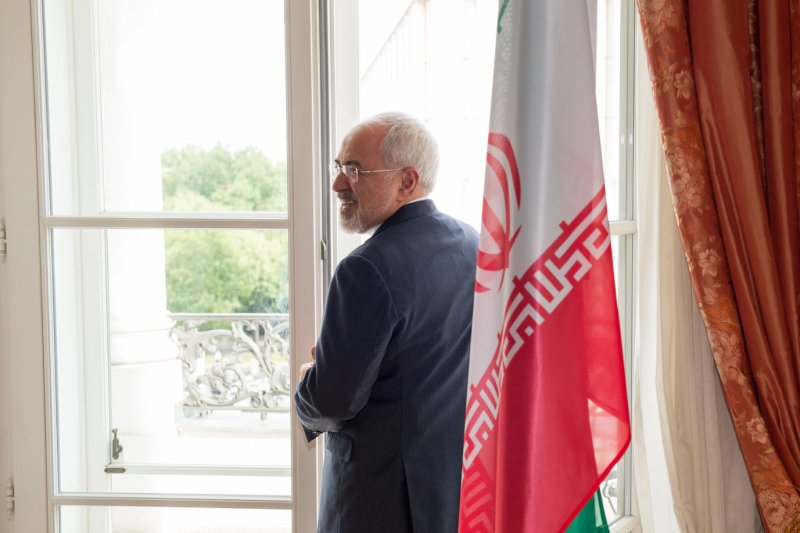Iranian Foreign Minister Mohammad Javad Zarif said his country won't turn its back on a nuclear deal, but would restart its programs should Washington dismantle a U.N.-backed arrangement that lets Iranian oil flow through the market. File Photo by Ali Mohammadi/UPI |
License Photo
April 23 (UPI) -- With sanctions pressure looming from the United States, the Central Bank for OPEC member Iran said it was looking to swap currencies with neighboring Turkey.
In an effort to facilitate trade, the Central Bank of Iran said during the weekend it put monetary treaties and currency swap mechanisms high on the agenda with its major economic partners. Its first line of credit was opened with Turkey last week.
"It should be noted that there is no need for a third currency such as the U.S. dollar or euro in this model to settle foreign exchange," the bank said Saturday. "By using this method, all purchases, transfers and financial transactions have been transferred to the banking system through currency operations and the risk of business operations between the two countries will be minimized."
The economic arrangement with Turkey could give Iran a way to continue trading should it face renewed sanctions pressures in May.
U.S. President Donald Trump decides next month whether to issue a sanctions waiver to Iran. If he doesn't, he would violate the terms of the U.N.-backed nuclear agreement and the deal would unravel. Trump has surrounded himself with advisors with a hawkish stance on Tehran, though Iran's foreign minister, Javad Zarif, said Sunday on "Face the Nation" on CBS News that it was Washington that was building a trust deficit on the international stage.
Zarif said Iran has no plans to end the deal, but will exercise its options -- including resuming its nuclear program -- if the United States follows through on plans to back out.
Sanctions on Iranian oil exports in the European market would come at a time when traders are watching a shrinking gap between supply and demand. When the balance was tilted heavily toward the supply side two years ago, markets had a lot of breathing room for unrest. With the gap indicating a market in balance, there's no room for geopolitical risk.
Iran is exporting around 1 million barrels per day and ending the deal could lead to a spike in crude oil prices. Pointing to an agreement led by the Organization of Petroleum Exporting Countries, Trump last week complained that oil prices were too high. Those higher oil prices are creating headaches for U.S. consumers at the gas pump, diminishing some of the impacts of Trump's tax relief.
Iran's Central Bank said the trade volume with Turkey is about $6 billion annually.















